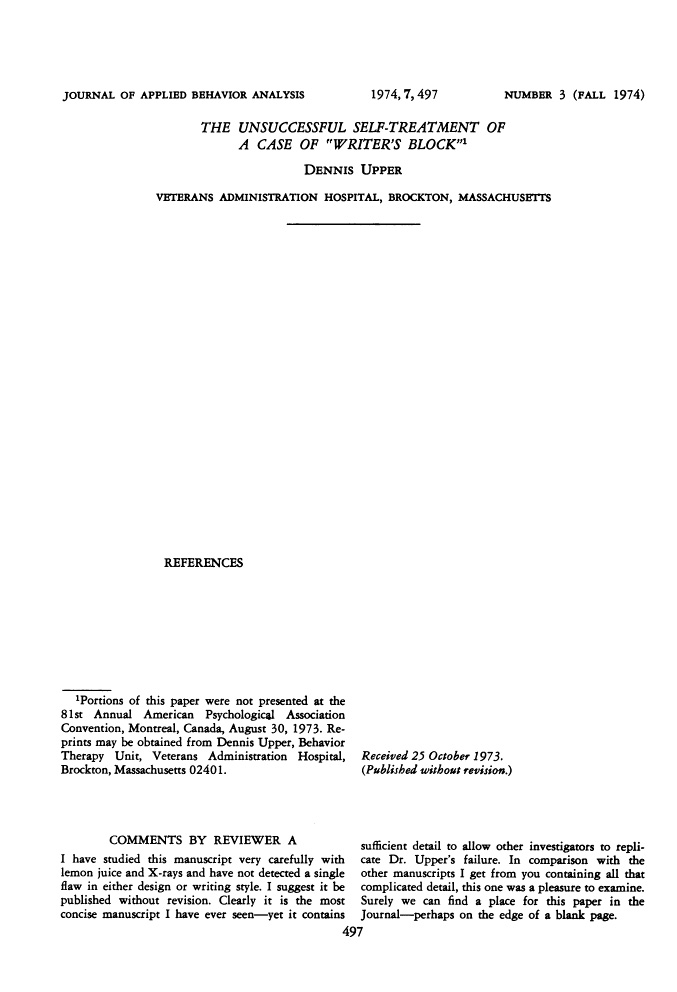It's about how to overcome writer's block.
The shortest study in the history of science is A. Self-treatment of writer's block fails (A failed attempt to treat the writer's crisis) Published in 1974 under the title A Journal of Applied Behavior Analysis In a journal called The post was written under the name of clinical psychologist Dennis Aber, or rather he did not write it, since
It doesn't contain a single word except the title and footnote – and that's the gist of it:

Click on the image for higher resolution!
The post attempts to draw attention to the fact that one way to overcome writer’s block is to simply stare at the blank page. According to the author, if you look at the blank page long enough, you may be able to break through this mental block. This approach has led to scientific writing that provokes deep thought without a single word. In this way, Al-Alawi is setting an example for the scientific world—with some exaggeration—of always being a serious and rigorous society, which is not only entertaining but also inspiring, because not every word in science has to be serious and formal.
Writer's Crisis
This is the case when a writer who wants to write suddenly loses his or her inspiration and is unable to write any more sentences. This problem can affect not only fiction writers, but also academic writers. Of course, not every writer experiences such a crisis, but when it does happen, it can be extremely frustrating. During the creative process, writers often feel as if an invisible wall is standing in front of them, preventing them from continuing to write.
The study received a positive and humorous review that was published with the article (you can see it in the footnote below the image above):
“I have examined this manuscript with great care, using lemon juice and X-rays, and have not found a single error in its construction or style of writing. I recommend its release without changes. It is clearly the most comprehensive manuscript I have ever seen, yet it contains enough detail to allow other researchers to repeat Dr. Aber’s failure. Compared to the manuscripts I usually get from you, which are full of intricate details, it was a pleasure to look at. We will certainly find a place for this study in the journal, perhaps on the edge of a blank page.
So science can be funny, even when it deals with a serious problem like writer's block — and the study has been cited several times, by the way, by Google, the scientific search engine. According to Google Scholar It is linked to more than 120 references.
(source: Medium.com, Wikipediapicture: National Library of MedicineOpening image: Getty Images)
You may also be interested in:






